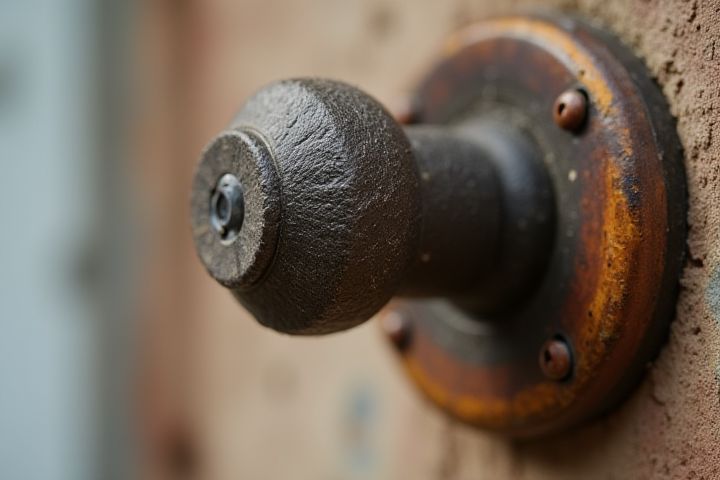
House noises can stem from various sources, including settling of the foundation, temperature fluctuations causing materials to expand and contract, and plumbing or electrical systems. Creaking floors and walls may indicate that the structure is adjusting, while popping sounds could be the result of wood drying out or heating systems activating. If you hear persistent water drips or clanging pipes, these could signal plumbing issues needing immediate attention. Drafts or vibrations might come from loose fittings or appliances. Regular maintenance can help minimize such noises and identify potential problems early on.
Why Is My House Making Noise
Thermal expansion and contraction
Thermal expansion and contraction in your house can create noticeable noises, particularly as temperatures fluctuate between seasons. Materials like wood, metal, and concrete expand when heated and contract when cooled, causing creaking, popping, or banging sounds. For instance, a drop of temperature by 10degF can lead to a significant decrease in the material size, resulting in audible shifts as joints and connections move. Understanding these natural physical processes can help you differentiate between harmless sounds and potential structural issues in your home.
Settling or foundation shifts
Your house may produce noises due to settling or foundation shifts, which are common as homes age. Within the first five to ten years, you might hear creaking, popping, or crunching sounds as the wood expands and contracts with temperature changes. If your foundation has shifted, it can lead to stress on structural components, resulting in additional sounds. Monitoring the situation is essential; if the noises become increasingly pronounced or are accompanied by cracks in the walls or floors, consulting a foundation expert can help ensure your home's stability.
Plumbing system noises
Household plumbing noises can arise from various sources, often signaling issues that need attention. A common culprit is water hammer, which occurs when fast-moving water abruptly stops, causing pipes to vibrate and bang. If you hear a hissing sound, it may indicate a leak in your pipes or fixtures, potentially leading to costly water damage if not addressed promptly. Sediment buildup in water heaters can also create popping or rumbling noises, suggesting it's time for maintenance to ensure efficient operation and prolong the lifespan of your system.
HVAC system sounds
If your house is making noise, particularly from the HVAC system, it could indicate several issues that may require attention. A rattling or banging sound often suggests loose components or debris obstructing airflow, while a high-pitched whine may indicate a failing blower motor or belt. Low-frequency rumbling noises might be a sign of a malfunctioning compressor, which should be inspected by a professional. Regular maintenance, including changing filters every 1-3 months, can reduce unwanted sounds and improve system efficiency.
Creaking floorboards
Creaking floorboards typically indicate that your home's structure is experiencing movement due to settling or fluctuating humidity levels. Wood naturally expands and contracts, which can lead to gaps between boards, causing those distinctive creaking sounds. The average house settles approximately 1 inch during its first year, and older homes may experience more significant shifts over time. Inspecting your floor joists and adding screws or shims can significantly reduce this noise and enhance your home's stability.
Pests or animals in walls/attic
Noise coming from your walls or attic often indicates the presence of pests or animals. Rodents, such as mice or rats, are known for creating scurrying and gnawing sounds, especially during nighttime, when they're most active. Larger animals like squirrels or raccoons can also invade your attic, producing thumping and scratching noises as they move around. If you suspect an infestation, your next step should involve a thorough inspection and, if necessary, contacting pest control professionals to safeguard your home.
Wind or weather effects
Wind can cause your house to make various noises, especially during strong storms or gusty conditions. For instance, when wind speeds exceed 30 mph, you may hear whistling or rattling as it flows around windows and doors, potentially indicating air leaks. Changes in temperature and humidity can further contribute, causing your home's structural materials to expand or contract, creating creaks and pops. Understanding these effects can help you identify whether the sounds are benign or if they signify repairs are needed to improve your home's resilience against weather conditions.
Loose or damaged roof components
Loose or damaged roof components can contribute significantly to the noise in your house. Debris, such as leaves or branches, can dislodge shingles, creating rattling sounds during windy conditions with speeds over 15 mph. Moreover, damaged flashing around chimneys or vents may lead to further deterioration, amplifying noise when it rains or hails. Regular inspections, ideally twice a year, can help identify these issues early, preventing costly repairs and minimizing disruptive sounds.
Electrical system issues
Unusual noises in your house can often be traced back to electrical system issues, such as loose wiring or faulty connections which can create crackling or buzzing sounds. A common culprit is an overloaded circuit, which may hum or emit popping noises as it struggles to handle the demand from your appliances. Another potential source is outdated electrical components, such as breakers or outlets, which can create intermittent sounds if they are failing or wearing out. If you notice these noises increasing in frequency or intensity, it is crucial to consult a qualified electrician to ensure your safety and prevent potential hazards, as approximately 51,000 home fires annually are attributed to electrical failures.
Appliances operating
The noises emanating from your house may often be attributed to operating appliances such as refrigerators, washing machines, or dishwashers. For instance, a refrigerator typically produces a humming sound, while a washing machine can generate thumping or spinning noises, especially during the spin cycle. If your dishwasher is running, it might create grinding or clanking sounds due to food particles being dislodged during cleaning. Understanding these common noises can help you distinguish between normal appliance operations and potential issues requiring attention.
